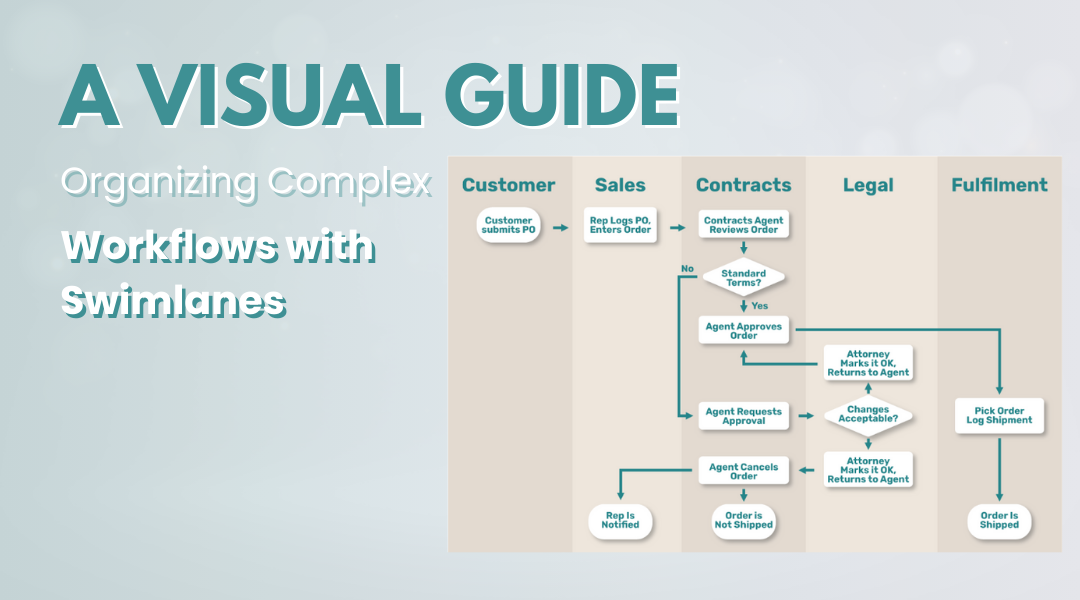The Power of Swimlanes in Process Mapping
Ever looked at a tangled workflow and wondered, “Who does what, and when?” That’s where swimlanes come in—a game-changing technique for untangling complex processes by assigning clear ownership to each step.
Think of swimlanes like lanes in a swimming pool: each swimmer (or system component) stays in their designated area, preventing collisions and confusion. In system design, this means cleanly separating tasks performed by different teams, software modules, or departments.
Breaking Down Swimlanes
1. What Exactly Are Swimlanes?
Swimlanes are vertical or horizontal partitions in an activity diagram that group actions based on who or what executes them. Each lane represents:
- A role (e.g., “Customer,” “Support Agent”)
- A system (e.g., “Payment Gateway,” “Inventory Database”)
- A department (e.g., “HR,” “Engineering”)
Example: In a ride-sharing app, you’d have lanes for:
- Rider (Book Ride, Pay Fare)
- Driver (Accept Ride, Navigate)
- Backend System (Calculate Fare, Dispatch Driver)
2. Why You Need Swimlanes
a) Eliminate Role Ambiguity
No more guessing whether the “Approve Refund” task belongs to Finance or Customer Service. Swimlanes make ownership explicit.
b) Expose Handoff Bottlenecks
Ever seen a process stall because two teams thought the other was responsible? Swimlanes reveal these gaps by showing exactly where tasks transition between parties.
c) Simplify Cross-Team Collaboration
Developers, business analysts, and stakeholders can all look at the same diagram and instantly understand their touchpoints.
Real-World Swimlane Examples
1. Hospital Patient Admission
| Front Desk | Nurse | Doctor |
| Check Insurance | Take Vital Signs | Diagnose Patient |
| Collect Co-Pay | Update Medical Record | Order Tests |
Key Insight: The swimlane structure exposes delays—like if vital signs aren’t taken before the doctor’s visit.
2. E-Commerce Order Fulfillment
[Customer] → [Order System] → [Warehouse]
• Add to Cart • Validate Payment • Pick Items
• Enter Address • Generate Invoice • Pack Order
• Checkout • Notify Warehouse • Hand to Courier
Problem Spotted: If the “Notify Warehouse” step fails, the warehouse lane stays empty—a clear process flaw.
Best Practices for Effective Swimlanes
1. Label with Precision
- Bad: “System”
- Good: “Legacy Billing Module (v2.3)”
2. Limit Lane Proliferation
More than 5–7 lanes? Split the diagram or group related roles (e.g., combine “Shipping” and “Warehouse”).
3. Highlight Critical Handoffs
Use color-coding or bold arrows where tasks cross lanes, like:
“Customer submits ticket → Support Agent assigns priority → Engineering fixes bug.”
4. Validate with Stakeholders
A swimlane diagram isn’t just a technical artifact—it’s a communication tool. Walk through it with:
- The warehouse manager to confirm packing steps.
- The software team to verify API triggers between systems.
When to Reach for Swimlanes
1. Multi-Actor Workflows
Example: A bank loan approval involving:
- Applicant → Loan Officer → Underwriting System → Compliance Team
2. Parallel Processes
Example: A video production pipeline with simultaneous lanes for:
- Scriptwriting → Filming → Editing → Marketing
3. Bridging Human + System Tasks
Example: A smart home setup where:
- User downloads app → IoT Device connects → Cloud activates features
Pitfalls to Avoid
The “Everything Lane”
- Don’t dump unrelated tasks (e.g., “Process Refund” and “Update Website”) into a single “Operations” lane.
Hidden Dependencies
- If the “Payment Processor” lane relies on data from the “Fraud Detection” lane but it’s not shown, failures will surprise you.
Static Diagrams
- Update swimlanes as roles evolve. That “Manual Data Entry” lane might disappear after automation.
Putting It All Together
Swimlanes transform chaotic workflows into structured, actionable maps. Whether you’re:
- Designing a patient flow for a clinic
- Debugging a supply chain delay
- Onboarding a new SaaS customer
…this technique ensures everyone knows their lane—literally.
Try This: Grab a current process (like “Employee Offboarding” or “Server Maintenance”) and sketch it with swimlanes.
